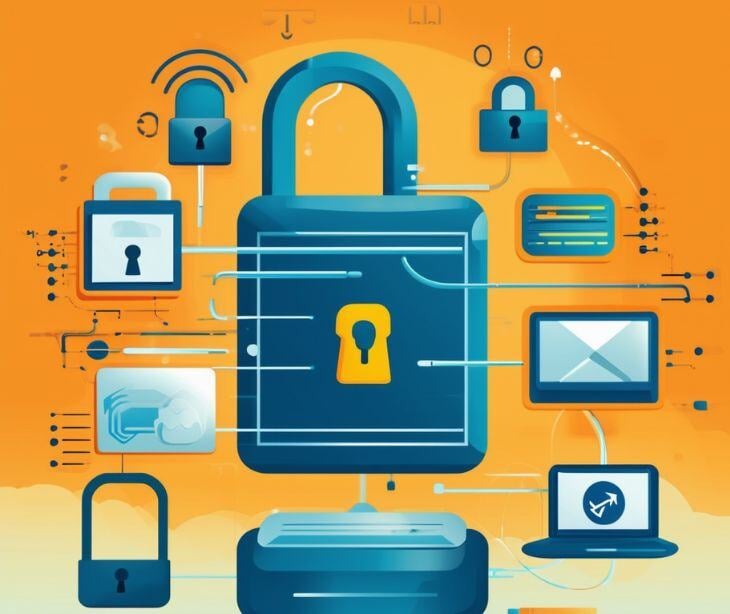
HIPAA compliant email solutions can enhance pregnancy-related healthcare communication by prioritizing the privacy and security of patient health information. These secure platforms allow healthcare providers to communicate sensitive information, monitor progress, and deliver personalized recommendations. This enhances prenatal care quality, supports remote monitoring, and facilitates timely interventions and personalized care plans for each pregnant individual.
Pregnancy-related healthcare
Pregnancy-related healthcare includes all medical care and support provided to women before, during, and after pregnancy to ensure the health and well-being of both the mother and the unborn child. This comprehensive healthcare approach includes prenatal care, labor and delivery services, postpartum care, and family planning support. Healthcare providers, including obstetricians, midwives, nurses, and other specialists, collaborate to provide personalized care tailored to the individual needs of each pregnant woman.
The goal of pregnancy-related healthcare is to optimize maternal and fetal health outcomes, promote positive childbirth experiences, and support the physical, emotional, and social well-being of women throughout the reproductive journey.
See also: How HIPAA applies to reproductive health information
Pregnancy-related healthcare communication
Pregnancy-related healthcare communication includes all forms of interaction and information exchange between healthcare providers, pregnant individuals, and their support networks throughout the prenatal, antenatal, and postnatal periods. This communication is essential for ensuring comprehensive care, promoting maternal and fetal health, and addressing the physical, emotional, and informational needs of pregnant individuals.
Here are components of pregnancy-related healthcare communication:
- Prenatal counseling and education: According to the Centers for Disease Control and Prevention (CDC), in the United States, about 77.5% of women initiated prenatal care in the first trimester of pregnancy in 2019. This suggests the need for pregnancy-related healthcare communication as early as in the first trimester. Healthcare providers communicate essential information to pregnant individuals regarding prenatal care, nutrition, lifestyle recommendations, and potential risks during pregnancy. This education empowers individuals to make informed decisions about their health and well-being.
- Appointment scheduling and reminders: Healthcare providers communicate appointment schedules, including prenatal check-ups, ultrasounds, and screenings, to ensure timely and appropriate care. Reminders via phone calls, text messages, or email help pregnant individuals stay organized and adhere to their prenatal care schedules.
- Clinical consultations and examinations: Healthcare providers engage in face-to-face consultations and examinations with pregnant individuals to assess maternal and fetal health, address concerns, and discuss treatment options or interventions as needed.
- Diagnostic test results and follow-up: Healthcare providers communicate the results of diagnostic tests, such as blood tests, ultrasounds, and genetic screenings, to pregnant individuals and provide appropriate follow-up care, counseling, or referrals based on the findings.
- Labor and birth planning: According to the World Health Organization (WHO), “every day in 2020, almost 800 women died from preventable causes related to pregnancy and childbirth.” Effective communication between the mother and the healthcare provider could prevent this. Healthcare providers can discuss birth plans, labor preferences, pain management options, and potential interventions with pregnant individuals and their birth partners to ensure a positive and informed childbirth experience.
- Postpartum care and support: Healthcare providers communicate postpartum care instructions, recovery guidelines, breastfeeding support, and emotional wellness resources to new mothers to facilitate a smooth transition to the postpartum period.
- Telehealth and remote monitoring: With the advent of telehealth technologies, healthcare providers may engage in virtual consultations, remote monitoring, and telemedicine appointments with pregnant individuals to address minor concerns, provide follow-up care, and offer support from a distance.
- Patient education materials: Healthcare providers distribute educational materials, pamphlets, brochures, and online resources to pregnant individuals and their families to enhance their understanding of pregnancy-related topics and promote self-care practices.
- Multidisciplinary collaboration: Pregnancy-related healthcare communication often involves collaboration among various healthcare professionals, including obstetricians, midwives, nurses, doulas, lactation consultants, and mental health specialists, to provide comprehensive care and support to pregnant individuals.
HIPAA compliant solutions
Email solutions that comply with HIPAA regulations are reliable and secure means for healthcare specialists to communicate with expecting mothers. Such provisions guarantee strict privacy measures, access controls, encryption standards, and comprehensive audit trails to secure patients' confidential health information.
One such example is the Paubox Email Suite. Paubox is a platform specifically designed for healthcare communication. Paubox is an exclusively crafted platform for facilitating healthcare communication. With a seamless encryption mechanism, Paubox safeguards sensitive patient data against unauthorized access or interception by unauthorized entities. In addition, its array of features, including marketing tools and text messaging capabilities, enable the safe exchange of information between healthcare providers and patients.
Go deeper:
Benefits of using HIPAA compliant email solutions
Using HIPAA compliant email solutions offers benefits for both healthcare providers and patients, including:
- Enhanced patient privacy: HIPAA compliant email solutions encrypt sensitive patient information, ensuring that only authorized individuals can access it. This helps maintain patient privacy and confidentiality, instilling trust in the healthcare provider-patient relationship.
- Secure communication: HIPAA compliant email platforms use encryption and other security measures to protect emails containing patient health information from unauthorized access or interception. This safeguards sensitive data during transmission, reducing the risk of breaches or data leaks.
- Convenience and accessibility: HIPAA compliant email allows for convenient and timely communication between healthcare providers and pregnant individuals. Patients can easily communicate with their doctors, schedule appointments, ask questions, and receive important updates without the need for face-to-face visits or phone calls.
- Efficiency and productivity: HIPAA compliant email solutions improve the efficiency of pregnancy-related healthcare delivery by streamlining communication processes. Healthcare providers can quickly respond to patient inquiries, share test results, and coordinate care plans, leading to better outcomes and satisfaction for both patients and providers.
- Remote monitoring and telehealth: With HIPAA compliant email, healthcare providers can remotely monitor pregnant individuals' progress, provide virtual consultations, and offer support throughout the pregnancy journey. This is particularly valuable for patients who may have difficulty accessing in-person care due to geographic, logistical, or health-related barriers.
Best practices for HIPAA compliant email communication
- Use a secure, HIPAA compliant email platform approved by your healthcare organization.
- Encrypt all emails containing PHI, including attachments and message contents.
- Avoid including sensitive information in the subject line or email preview.
- Enable automatic logoff and session timeout features to prevent unauthorized access to email accounts.
- Regularly update software and security patches to protect against vulnerabilities and cyberthreats.
- Monitor email communications for any suspicious activity or unauthorized access attempts.
- Train staff on how to recognize phishing attempts and other email security threats.
FAQs
What features should a HIPAA compliant email solution have?
A HIPAA compliant email solution incorporates
- encryption,
- access controls,
- audit trails,
- data loss prevention,
- automatic logoff,
- secure authentication,
- business associate agreements,
- secure message forwarding and reply,
- secure attachments, and
- training and awareness,
to ensure the security and privacy of patient health information. These features collectively enable healthcare organizations to securely communicate PHI via email while adhering to HIPAA regulations and safeguarding patient privacy and confidentiality.
What is the difference between HIPAA compliant and secure communication?
HIPAA compliant communication adheres to regulations set by the Health Insurance Portability and Accountability Act (HIPAA), ensuring the protection of patient health information. However, secure communication involves methods to safeguard data during transmission and storage, encompassing a broader range of security measures beyond HIPAA requirements. While all HIPAA compliant communication is secure, not all secure communication may meet HIPAA compliance standards.
See also: Understanding the difference between secure and encrypted email
Subscribe to Paubox Weekly
Every Friday we bring you the most important news from Paubox. Our aim is to make you smarter, faster.




